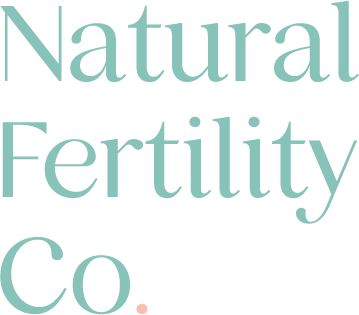Do you REALLY need to worry about toxins and your fertility?
Do You Really Need to Worry About Toxins For Fertility?
Every day in clinic I have people highly motivated to make changes to improve their fertiity but I simultaneously also see just as many patients who feel madly overwhelmed by all the things they are “supposed'“ to cut out of their diet and lifestyle.
So, let’s get real about toxins and fertility. Do you REALLY need to worry about cutting them back? And how on earth do you do that in a way that’s not consuming, expensive and overwhelming?
What are Endocrine Disrupting Chemicals?
Endocrine Disrupting Chemicals (EDCs) are substances found in lots of different, everyday products that have the potential to interfere with our endocrine system ie hormones and also our reproductive system . And if something has the potential to impact our hormones and reporductive system then yes, we need to take it seriously when it comes to fertility. The main ways that EDC’s can impact fertility are:
Hormones: EDC’s can mimic, block or alter hormone messages in our body. And if they do that with oestrogen or androgens then this can impact your cycle, as well as your total hormone health.
Ovulation: EDC’s can interfere with the production of hormones that are really important for ovulation.
Egg Quality: EDC’s can cause damage caused oxidative stress to eggs as they are developing.
Sperm health: Sperm are also susceptible to damage from EDC’s and this can impact count, motility and morphology.
Pregnancy complications: Some EDC’s can impact the risk of preterm birth, low birth weight and also the development of a precious baby.
Epigenetic changes: This means that some EDC’s can actually impact the way genes are turned on or turned off and this can have a direct impact on fertility related genes as well as potentially reproductive health of future generations.
How Can You Minimise EDC Exposure Without Having to Change Your Whole Life?
It is actually easier to limit exposure to EDC’s then people generally think. Making small changes, one at a time, to move you towards a low-tox lifestyle is defnitely achievable. Lets break it down into 4 main areas:
Diet: What you eat can directly impact your exposure to EDC’s. Choosing organic where you can, will definitely minimise your exposure to pesticides and chemicals. But at a minimum, if the food is not organic make sure you clean it well prior to cooking/eating. Additionally, opting for minimally processed foods can also help to lower your exposure to synthetic chemicals that are commonly used in food production.
Perosnal care prdocuts: Many conventional personal care products contain harmful chemicals that can disrupt hormones. Replacing these products with natural, toxin free alternatives is a great step forward to reduce your EDC exposure. Jaclyn absolutely LOVES this topic because she also likes to make sure that the products you’re using are also really efffective so make sure you ask her in your appointment about her favourite low tox personal care products.
Lifestyle choices: Hobbies, furnishings, storage containers etc are often ways that people can be unknowingly exposed to EDC’s. For instance, plastic containers used to store food and drinks can lead to the leaching of EDC’s into the food/drinks you consume. So making the transition from plastic containers to safer alternatives, such as glass storage, can help to minimise this exposure.
Home environment: Optimg for non-toxic cleaning supplies are essential to creating a home environment that minimises your expsoure to toxins. Start with simple changes if this feels overwhelming.
Taking the First Step…
Embarking on a low tox journey can definitely feel overwhelming if you try to tackle it all at once. But remember, our approach to a fertility friendly lifestyle is one that is achievable. So start by just taking one step at a time. And trust that any step you make, helps to start to reduce your exposure to EDC’s- which is a step in the right direction. So if right now you’re thinking ok, but what? I want you to go to your cupboard and pull out your old plastic containers, the ones that are marked, stained and the plastic is starting to deteriorate. Throw those ones away, or donate them if it feels better for you, and replace those ones with glass alternatives. If the budget is tight, pick the oldest most used container, especially if use it in the microwave, and replace that one.
Toxins, particularly EDC’s, can definitely imact fertility by interfering with hormones, egg quality and sperm health. However, by making some conscious choices and changes in your diet, personal care products, lifestyle and home environemnt, it’s possible to significanlty reduce your exposure to EDC’s. Take it one step at a time, and make sure you seek help if you need to. This is a common area that we educate our patients about in a way that feels do-able, realistic and achievable. Embrace the fact that moving towards low-tox can be a journey, you don’t have to do it all at once if you’re not ready to.
Are you ready to take a deep dive into unlocking your hidden fertility blocks and gaining a clear path to overcome them? Then join us for your 1 month Fertility Intensive. This comprehensive program provides personalised guidance, clinical naturopathic care, and a roadmap tailored to your unique needs. By joining the Fertility Intensive, you'll have the opportunity to optimise your health, fertility, and chances of conception.
With over 7000 babies born through our clinic we can’t wait to help you on your path to parenthood too.

